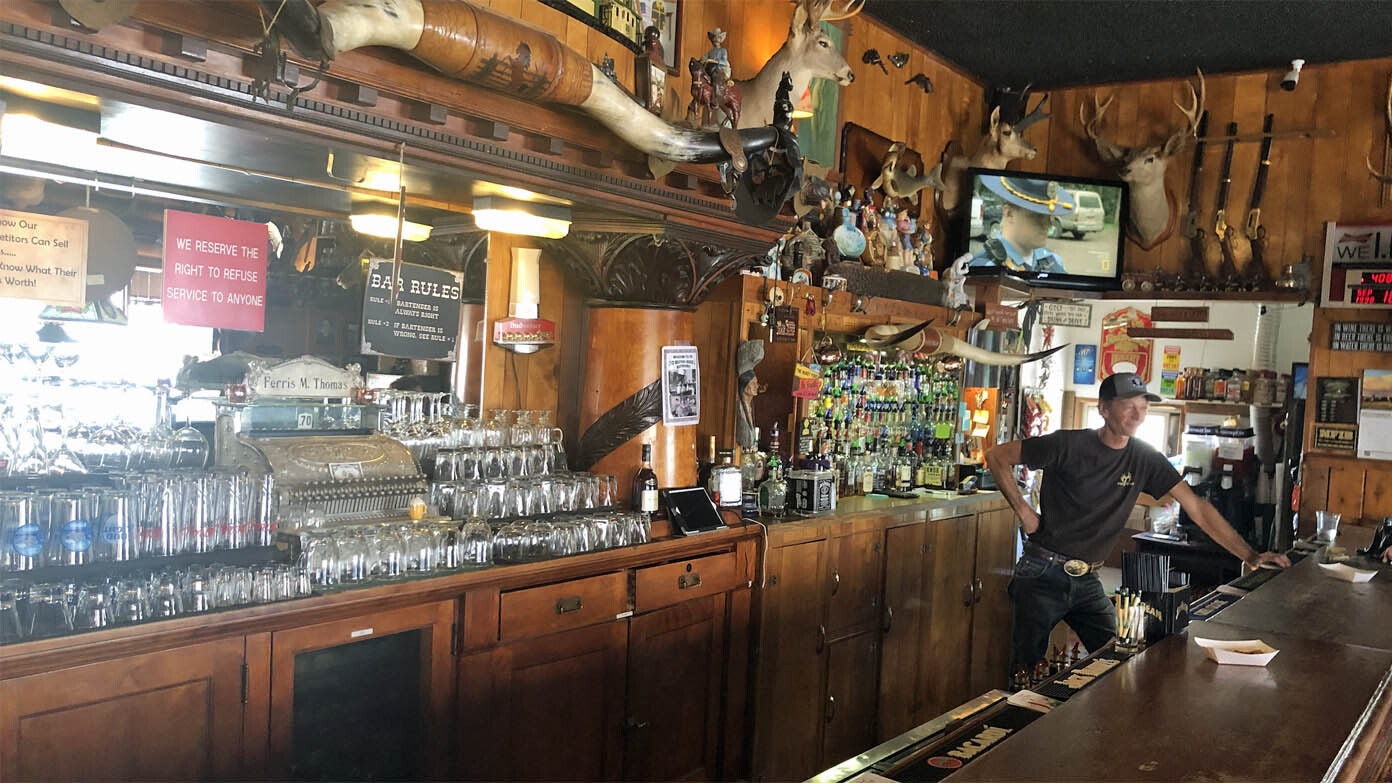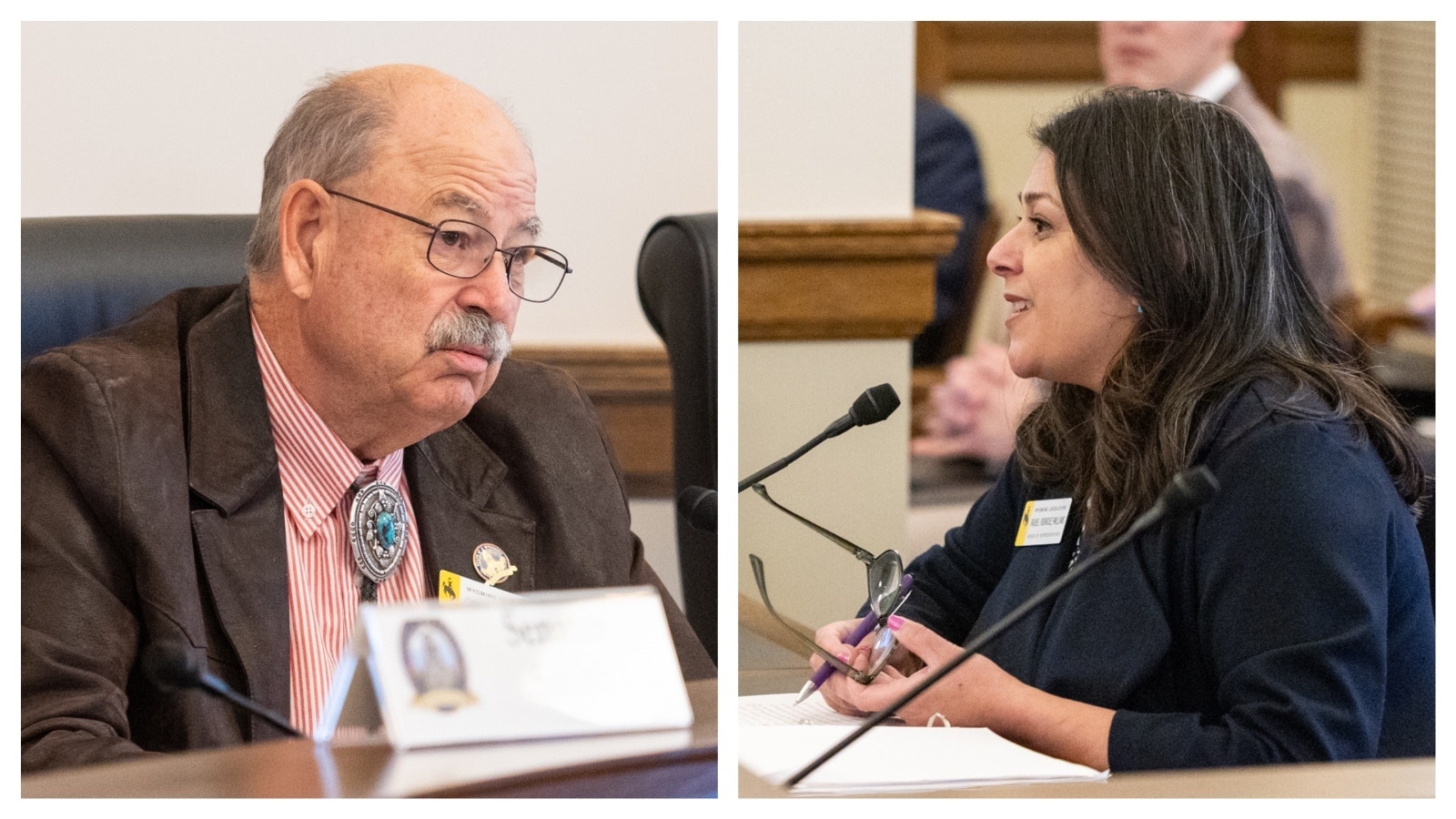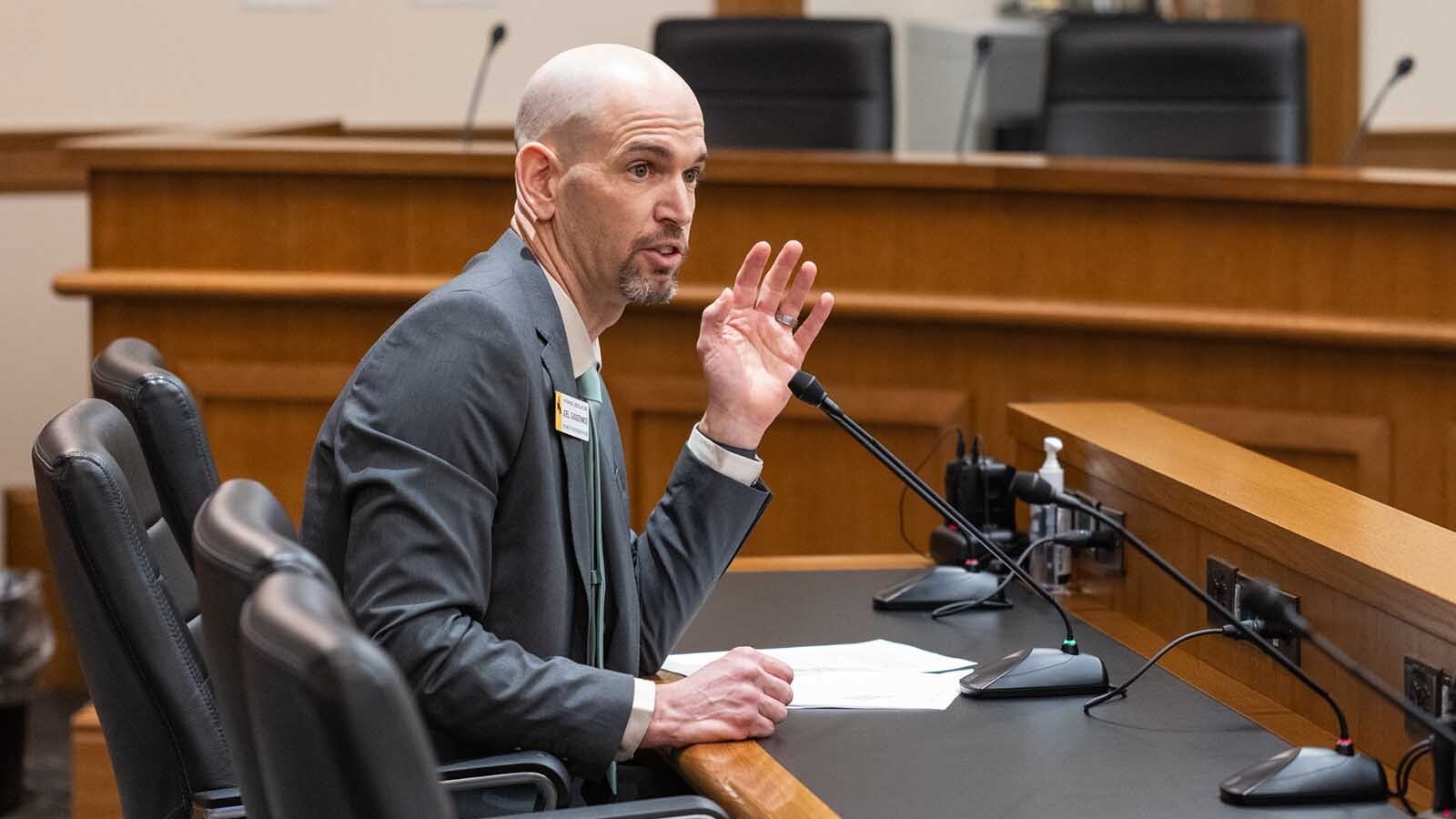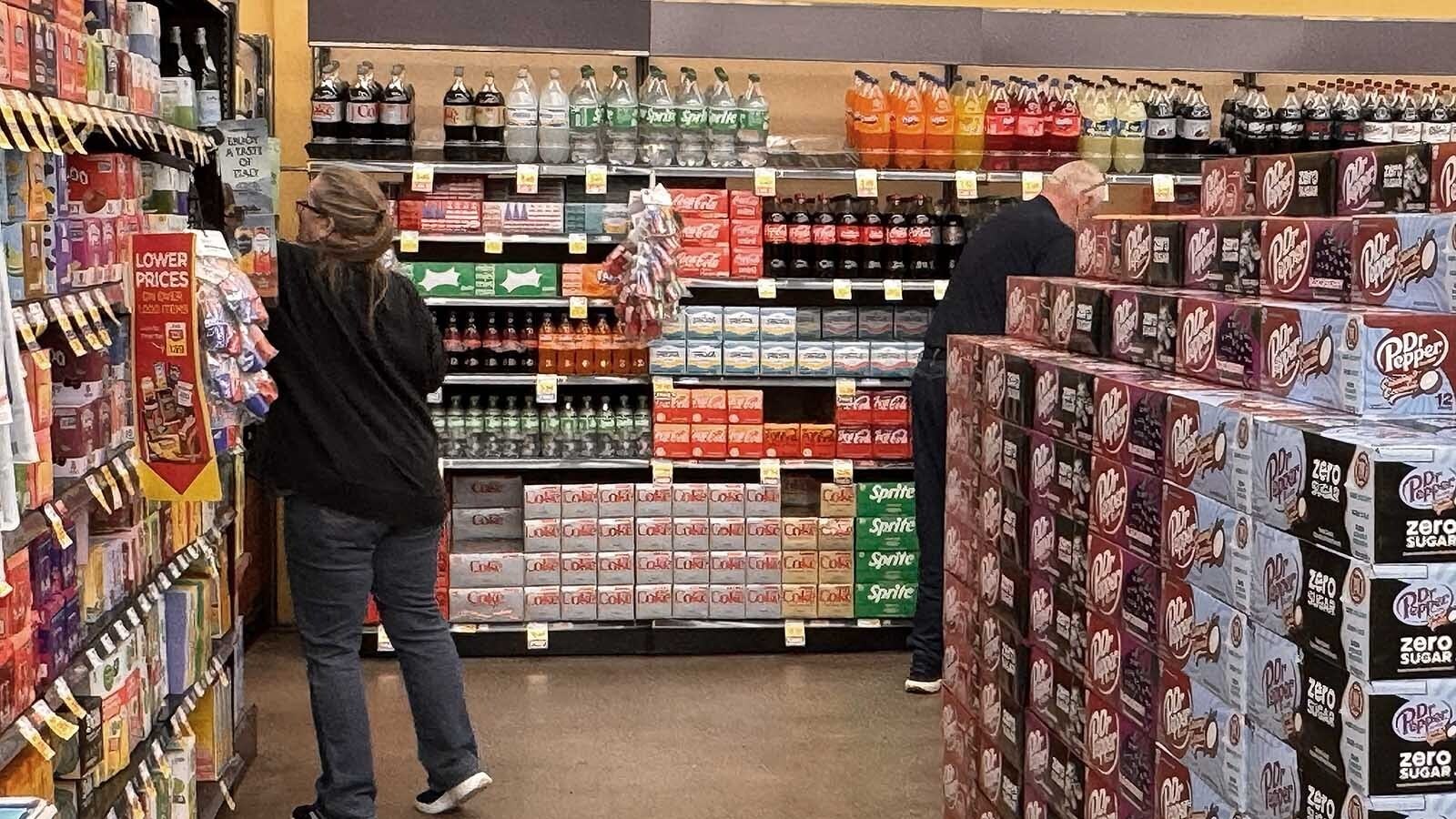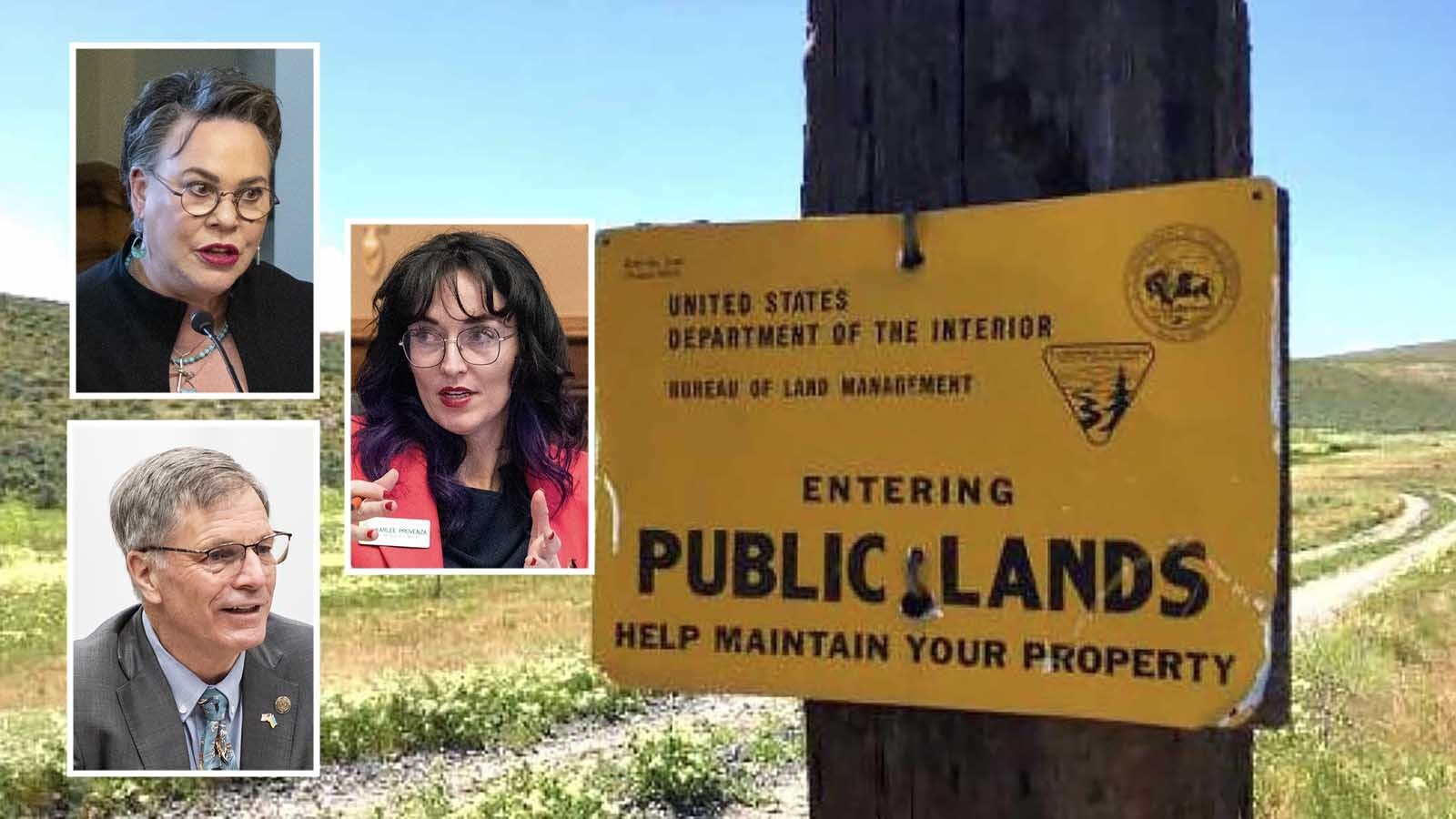A slate of bills is being considered before the Wyoming Legislature that would make liquor licenses much easier for businesses to attain in the State of Wyoming.
One draft bill would, by 2033, eliminate the population formulas used to determine how many bar and grill liquor licenses a community can give out. If passed, it would be up to local municipalities to determine how many of these establishments they want in their communities.
A draft of this bill is being presented before the Corporations, Elections and Political Subdivisions Committee on Thursday morning in Casper.
This bill would also eliminate the restaurant liquor licenses classification in Wyoming, but Patrick Collins, mayor of Cheyenne, said he and the Wyoming Association of Municipalities will advocate for leaving this classification in.
“We want to continue to have a lower cost option in the market,” he said.
Another bill would establish a tavern and entertainment liquor license, which could apply to businesses such as golf driving ranges and ax throwing facilities that derive 60% of their revenue from food or entertainment.
Collins said there was a pinball business in town of Laramie that may not have gone out of business if it had the opportunity to access a liquor license like this.
Licenses
Wyoming has several types of liquor licenses. Full retail licenses are those most often sought by bars that may also want to sell liquor on a retail basis.
The state also has bar and grill licenses granted to businesses that serve food from a restaurant and alcohol from an attached bar or lounge and a restaurant license granted to restaurants that wish to serve alcohol without an attached bar or lounge.
In 1979, restaurant liquor licenses were created in Wyoming and in 2006 bar and grill liquor licenses were established in the state.
The primary difference between those two licenses is that a bar and grill license comes with the stipulation that 60% or more of a business’s sales must come from non-alcoholic items.
Retail liquor licenses are also awarded based on a communities’ population.
One additional license became available in Cheyenne and Sheridan with the release of new population numbers from the 2020 U.S. Census.
Fifteen of the 16 Wyoming cities with a population larger than 5,000 people are capped out for retail liquor licenses.
Twenty-one of the 26 cities with a population from 1,000-5,000 people are sold out, and 30 of the 58 towns with a population of less than 1,000 people are sold out.
Competition for retail liquor licenses has become fierce in some Wyoming communities. In Sheridan and Cheyenne this past spring, city councils were reviewing 11 applications each for one available license.
Liquor licenses were first established in Wyoming in 1935, which was when the corresponding population formula was also established.
Cody mayor and president of the Wyoming Association of Municipalities Matt Hall said like the retail license shortages, Cody, Sheridan and Jackson are maxed out for bar and grill liquor licenses. H
He mentioned an awkward situation a few years back where a business was purchased that had this license. A competition ensued for this last license between the new owner and an owner of a separate business.
Another bill being proposed would eliminate the transfer of retail liquor licenses. The tavern bill would also prevent transfers between old and new owners.
Mike Moser, executive director of the Wyoming State Liquor Association said during a June 30 Corporations Committee meeting, his organization has always supported the increase of liquor licenses available if it does not come at the expense of existing businesses.
“The community seriously gives us a sacred trust,” Moser said. “If this property is sold improperly or in excess, really bad things can happen.”
The current regulations have no adjustment for how many licenses that can be given out for cities considered to be tourist destinations.
Collins said there isn’t much interest in the Legislature for increasing the amount of retail liquor licenses allowed, so that’s why alternate legislation such as the tavern bill is being proposed to allow more businesses to enter the market, while meeting the concerns of those who worry about added competition or too many alcohol-related businesses entering a community.
“This is a way for municipalities to help entrepreneurial people to start businesses and give them a means to do so,” Hall said.
Hall said because of the scarce supply for liquor licenses, they have become an additional asset valued into commercial property sales, with some licenses going for as much as $150,000 in addition to the sale of a property.
“There really isn’t a blue sky value,” Moser said. “It comes down to what you’re willing to pay.”
Moser said many standalone bars and taverns are dying, with more focus being given to entertainment-based facilities and other venues when it comes to the serving of alcohol.
“People’s habits have changed, they just don’t go to a bar and drink for four hours anymore,” Moser said.

